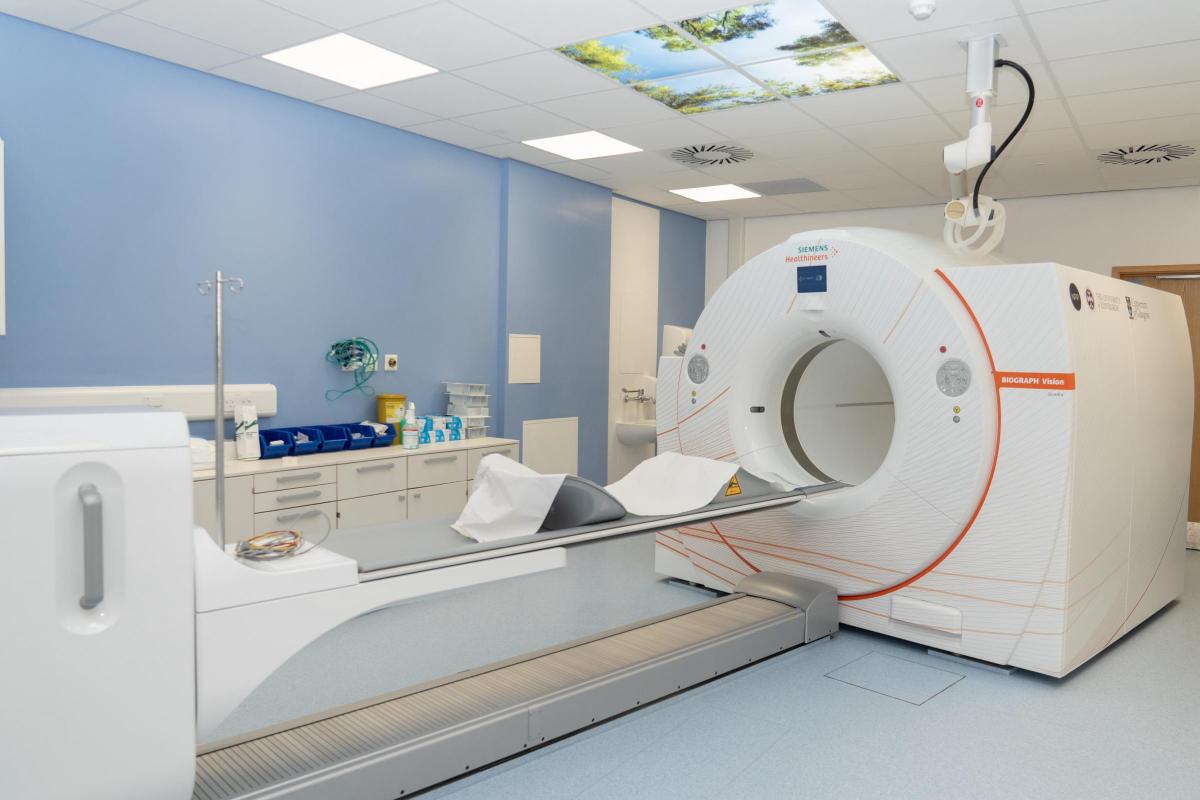Scotland’s first total-body scanner is now up and running in Edinburgh.
The scanner at the Royal Infirmary of Edinburgh is co-managed by the Universities of Edinburgh and Glasgow and delivered by the National PET Imaging Platform (NPIP).
The NPIP is funded by a £32 million investment from the UK Research and Innovation (UKRI) Infrastructure Fund.
(Image: Supplied) John Cowan, a patient at the Royal Infirmary of Edinburgh, said: “After coming into hospital with a stroke, the doctors could not tell me what had caused my stroke which was worrying for me.
“I seized the opportunity to volunteer to take part in a research project using the very latest total-body PET scanner and it was able to pinpoint exactly what had caused my stroke, where the blood clot had come from and what treatment I needed.
“I am delighted that this scan has given me peace of mind and ensured that I am on the right treatment.”
Professor Chris Molloy, CEO (Image: Supplied) Professor Chris Molloy, chief executive of Medicines Discovery Catapult, said: “The national platform we have created allows the combined power of technology and data to be harnessed, attracting industry to test their new treatments here in the UK for the benefit of our patients and our economy.
“It shows what’s possible when strategic public funding, clinical expertise, industry knowledge and academic excellence come together around a shared national purpose.
“These revolutionary scanners help save lives and create large-scale capability for radiopharmaceuticals and AI-enabling datasets.”
Read more:
Dr Juliana Maynard, director of operations and engagement at NPIP, said: “Using these total-body PET scanners, we can observe disease in real time, across the entire body and now, throughout the entire country.
“That’s game-changing for drug discovery and treatment in the UK and, more importantly, for how quickly patients can benefit from it.”
Professor David Newby of the University of Edinburgh and co-director of the NPIP Scotland Centre, said: “The NPIP Scotland Total-body PET Facility is a transformative technology that has already started to advance clinical research and patient care, improving our understanding of complex diseases.
“Through the NPIP network, new collaborative projects will address some of the major unmet health problems that society faces today, such as endometriosis and stroke.” Dr David Lewis of the University of Glasgow, Cancer Research UK Scotland Institute, and co-director of the NPIP Scotland Centre, said: “Total-Body PET scanners are a quantum leap forward in medical imaging technology, and we are proud to be part of a pioneering partnership between the University of Edinburgh, the University of Glasgow, NHS Greater Glasgow & Clyde, and NHS Lothian, jointly managing one of the first of these cutting-edge scanners in the UK.
“The Scotland Total-Body PET scanner will serve as a catalyst for ground-breaking research and offers a unique window into our understanding of human diseases.”
